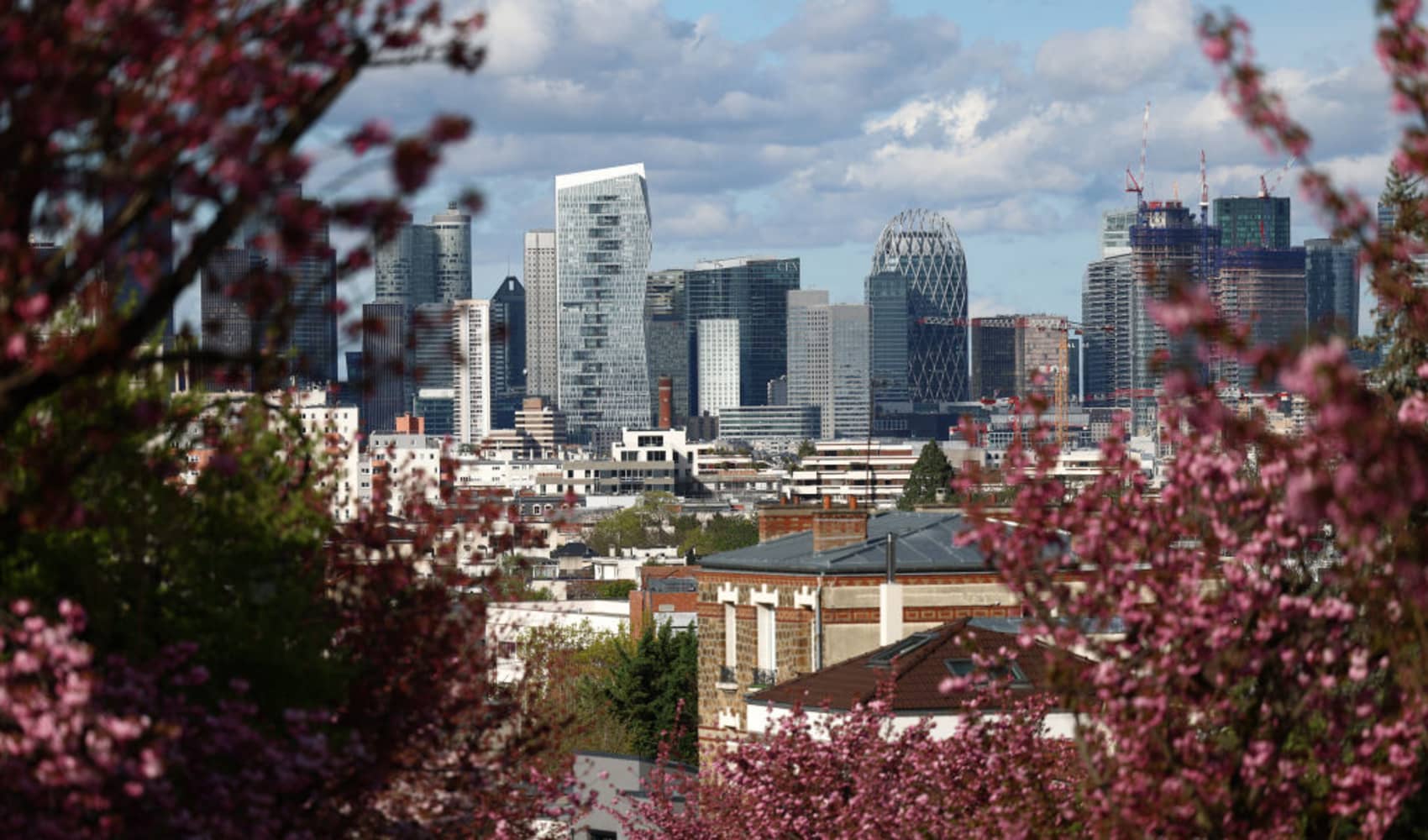
- A new report from Pew Research Center shows 80% of people are willing to make changes to how they work and live to reduce the effects of global climate change.
- The data comes from a survey of 18,850 people in advanced economies.
- In the U.S., the difference in willingness to change behavior to reduce climate change falls on party lines: 45% of those on the right, or conservative, end of the political spectrum report being willing to change, compared with 94% of those on the left.
Climate change is getting personal.
Four in five people are willing to make changes to how they work and live to help reduce the effects of global climate change, according to new data released Tuesday by the nonpartisan Pew Research Center.
Only 19% of those surveyed reported they would be willing to make only a few or no changes at all to help reduce the effects of global climate change.
Get Boston local news, weather forecasts, lifestyle and entertainment stories to your inbox. Sign up for NBC Boston’s newsletters.
People are worried that climate change is going to impact their own lives: 72% of the people surveyed are very or somewhat concerned that global climate change will harm them personally at some point in their lifetime. Only 27% of those surveyed are not too concerned or not at all concerned that climate change will harm them personally in their lifetime.
"Concern is going up," said Nick Bridge, the United Kingdom's Foreign Secretary's Special Representative for Climate Change, in a call with reporters on Tuesday. "And that's because our scientific understanding is elaborating all the time, and we're hearing and seeing absolutely shocking events all over the world that are now baked in."
Money Report
"We really do see the concern going up for good reason," Bridge said.
The data comes from a survey of 18,850 people in advanced economies.
From March 12 to May 26, Pew Research Center surveyed 16,254 adults over the phone in Canada, Belgium, France, Germany, Greece, Italy, the Netherlands, Spain, Sweden, the UK, Australia, Japan, New Zealand, Singapore, South Korea and Taiwan.
From Feb. 1 to 7, Pew Research Center surveyed 2,596 U.S. adults online, and the responses were weighted to be representative of the U.S. adult population by gender, race, ethnicity, partisan affiliation, education and other categories.
While the Pew data was just released Tuesday, public sentiment may already be a notch more intense, said Helen Mountford, vice president of climate and economics at the World Resources Institute, a global research organization.
"These surveys were done before the recent IPCC report released last month, which really was a red alarm for from leading scientists to all of us," Mountford said in a call with reporters on Tuesday. "And it was also before the the very dramatic climate impacts we all saw, and many of us felt this summer, including record wildfires, heat waves, extreme flooding around the world."
"I wonder if even today, the results might be even clearer in terms of the demand from citizens for more action and what they themselves are willing to do," Mountford said.
A party-line split in the U.S.
More respondents on the left of the ideological spectrum said they were willing to make changes to their own personal life and work habits to help reduce the effects of climate change.
Political polarization in the U.S. was on clear display in the survey, with a wide disparity between conservatives and liberals in terms of their expressed willingness to change.
In the poll, 45% of American conservatives said they were willing to change how they live and work to help reduce the effects of global climate change, while 94% of liberals said they'd be willing to change.
That's a gap of 49 percentage points, far larger than in any other country.
In Germany, for example, 94% of liberals are willing to change, versus 72% of conservatives — a 22-point gap. In Italy, that gap is only 7 percentage points: 96% of liberals versus 89% of conservatives.
While people are overwhelmingly worried about climate change, they don't have much confidence that humanity will respond to the challenge.
Specifically, respondents say the United States and China are doing a poor job responding to climate change.
When residents of other countries were asked how they feel the United States is doing in its response to climate change, 61% of survey respondents said "bad." Only 36% of survey respondents said "good."
It's worth noting here, too, said Mountford, that the Biden White House has followed up on early commitments of supporting climate change response since this Pew survey was completed.
"In the spring and April, they announced a very ambitious new target for 2030, reducing emissions by 50 to 52% compared with 2005," Mountford said Tuesday. "And then, more recently, what they're doing now is trying to get passed — two important things, one, a major infrastructure, The American Jobs Plan, and two, a budget reconciliation package. And together, if these actually are able to go forward, they'll really be able to deliver the kind of climate ambition the U.S. is looking for."
China is doing even worse: 78% of survey respondents say China is doing a bad job in responding to climate change, while 18% said China is doing a good job.
The European Union and the United Nations are both doing much better in the court of public opinion: 63% of survey respondents said the EU is doing a good job responding to climate change, while 31% said the EU is doing a bad job, and 56% of respondents said the UN is doing a good job, while 39% said the UN is doing a bad job.
Overall, 56% say their own society is doing a somewhat or very good job of dealing with climate change, while 44% say their own society is doing a very or somewhat bad job.
Across the board, younger people are more concerned than older people are about climate change. Also, women are generally more concerned than men.
"The young voice is absolutely critical and it's getting more and more important, and I think it's impactful," Bridge said. "There's also not insignificant anecdotal evidence that young people are very important leaders ... So I think I think the young voice is absolutely critical."
Regardless of age, concerned citizens looking to contribute to climate change solutions should use their voice by voting, Mountford said.
"One of the most important things that people can do is vote," she said. "Vote for representatives who will actually reflect your future, the future of your children, and what needs to happen to actually avoid some of those really catastrophic potential impacts of climate change."
This story has been updated to include comments from Bridge and Mountford.






